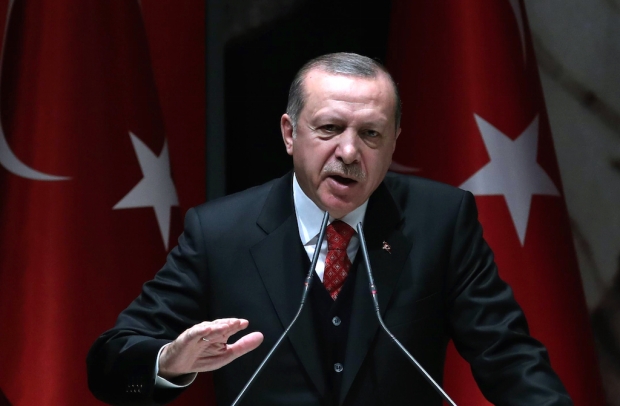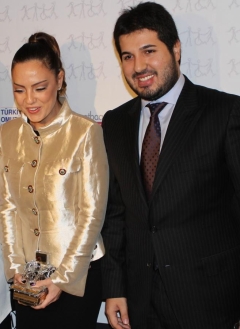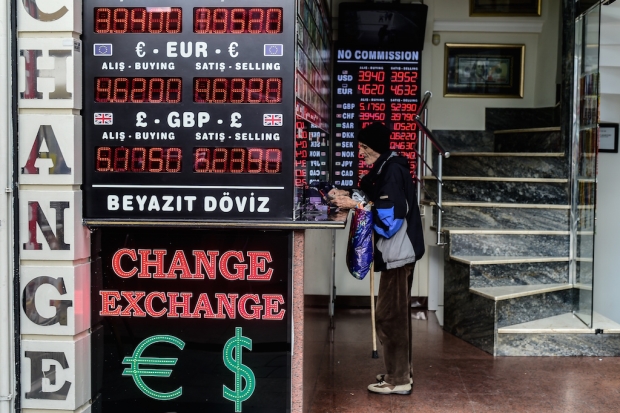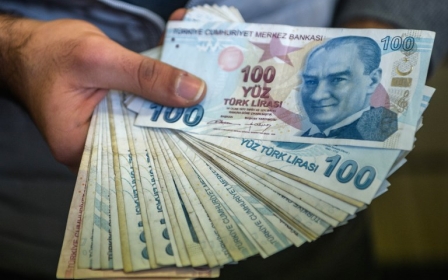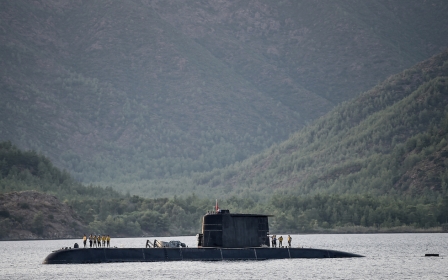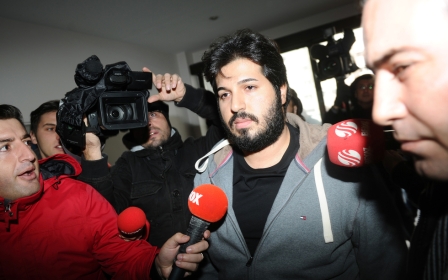A gold trader, a president and an Iranian conspiracy: The US case shaking Turkey
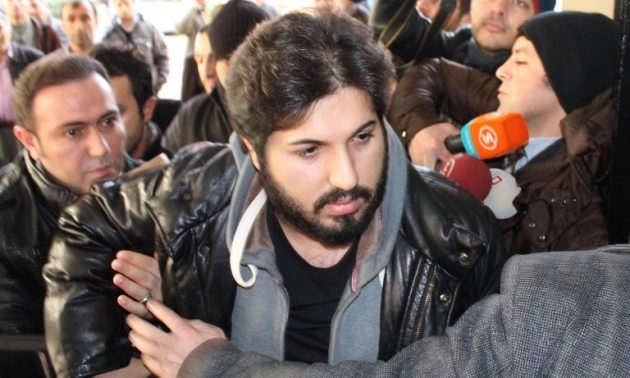
It is a rap sheet that has the makings of a film script: corruption at the highest levels of government, bank deals to bust international sanctions, multi-million dollar jewellery gifts, and at the centre of it all, a debonair gold trader with a pop-star wife.
And it also stands at the centre of the slow and painful death of relations between Turkey and the United States.
Although a number of factors have led to worsening relations between the two countries, much of the focus is now on the case of Turkish-Iranian businessman Reza Zarrab.
Zarrab was arrested in Miami, Florida, in March 2016 by the FBI on accusation of fraud, money laundering and of having helped the Iranian government evade sanctions imposed on it by the US. Eight others have also been indicted in the case.
Since then the case has developed into a cause celebre in Turkey as well as a diplomatic crisis. On Tuesday, the Turkish president, Recep Tayyip Erdogan, said Zarrab's arrest was comparable to an attempt to overthrow the Turkish government.
He also suggested that followers of the US-based cleric Fethullah Gulen - who Turkey has blamed for the July 2016 coup attempt - were behind the accusations against Zarrab.
On Monday, Turkey's deputy prime minister, Bekir Bozdag, also slammed the proceedings and said Zarrab was a "hostage" and that the trial was "political" and that it lacked "any legal basis".
Beside Halkbank, some other Turkish banks were used. In the future of the case, serious penalties are waiting for the banks of Turkey
- Kamil Maman, journalist
However, many suspect the primary concern is that a case against Zarrab could end up implicating Erdogan and his inner circle in criminal activity.
The latest indictment in September charges that "high-ranking government officials in Iran and Turkey participated" in a "multi-year scheme to violate and evade US national security controls against the government of Iran".
Among the most high profile defendents mentioned is former Turkish economy minister, Mehmet Zafer Caglayan, who is charged with having "received tens of millions of dollars worth of bribes in cash and jewellery from the proceeds of the scheme to provide services" to the government of Iran.
Zarrab is thought to have paid Caglayan, who was minister between 2011 and 2013 and is still an AKP MP, the equivilent of $35m to this effect.
According to Reuters, a file issued on 30 October detailed recorded phone conversations and documents that prosecutors suggest indicate Zarrab was "looking out for Erdogan's interests".
In one call that reportedly occurred on 16 April 2013, Zarrab spoke to another defendant about his efforts to acquire a bank so as to establish a conduit for Iranian transactions.
Four days earlier, prosecutors allege, said Zarrab spoke with the then-Turkish prime minister Erdogan at a wedding.
"I explained it that day at the wedding," Zarrab told the co-defendant, according to prosecutors.
"I will go back and will say, Mr Prime Minister, if you approve, give me a licence, I will go though BDDK (the Turkish bank regulator) even if I bought the bank anyway."
For 34-year-old Zarrab, his rise to international notoriety is the latest chapter in an extraordinary young life, which has both scaled the heights of Turkish society and plumbed the depths of infamy.
Born to Azeri parents in Iran, he grew up in Azerbaijan and Turkey where he later acquired citizenship, reportedly at the age of 24.
He soon rose to prominence with his company Royal Holding and in 2008 married the popular singer, Ebru Gundes. In 2015, he recieved the Turkish Export Award, handed to him in a ceremony attended by Erdogan.
But his star was to fade after he was arrested as part of the 2013 corruption scandal that, among other things, saw the ruling Justice and Development party (AKP) dramatically fall out with their erstwhile allies in the Gulen movement. The charges were later quashed.
But there is now the real fear that Zarrab's current case, and potential fines for the Turkish banking system - including the largely state-owned Halkbank - will mortally wound Turkey's fragile economy.
Although Zarrab's first day in court is officially set for 4 December, he has been absent from recent preliminary sessions, leading to rumours that he may agree a plea bargain with US prosecutors.
Federal judge Richard Berman on Monday postponed jury selection and pushed it back to 27 November.
Zarrab was not present at a court session the next day. Only his co-defendent Mehmet Hakan Atilla - the former deputy chief of Halkbank - showed up. Atilla's name is also the only defendent listed on the most recent court documents.
"Now it seems like Reza Zarrab is turning into a state witness - and if he is going to talk to prosecutors he is going to spill the beans," he told Middle East Eye.
The Turkish government has moved to target those involved in the case with punitive measures and pro-government media has been on the offensive.
On Saturday, Turkey announced it was investigating former US Attorney, Preet Bharara, and acting US Attorney, Joon H Kim, for gathering evidence against Zarrab, claiming they had violated international and domestic law in doing so.
Erdogan's own rhetoric against the US has continued to mount. Coming on top of the US refusal to extradite Gulen and the detention of US officials in the Istanbul consulate last month, Tanir said there was no telling where the current crisis could leave relations between the two countries.
"[Erdogan] is panicked. He talks about Zarrab day in and day out," he said. "We have seen Erdogan attacking the US and a couple of his speeches, even by Erdogan's standards - he was talking about the US like an enemy."
'They're not Gulenists'
Kim hit back on Tuesday at suggestions that Gulenists had been involved in the prosecution process, saying the claims were "ridiculous on their face" and showed a "fundamental misunderstanding" of the US justice system.
"They're not driven by Turkish domestic politics," he said of the investigators and FBI agents involved in the case. "They're not Gulenists."
Federal Judge Berman also warned on Tuesday that some "people involved in the case" were being "approached inappropriately by third parties."
"And that even includes court interpreters," he added, saying he would alert the authorities if there was any more evidence of this.
Kamil Maman, a Turkish journalist who has spent years following the Zarrab case, said the claims of Gulenist involvement in the case were "ridiculous" and warned that the case was "just the start of the storm".
"This can destroy Erdogan's power and economic structure of Turkey," he told MEE. "Beside Halkbank, some other Turkish banks were used in this criminal network. In the future of the case, serious sanctions and penalties are waiting for the banks of Turkey.
"This will collapse the Turkish economy."
Maman, who fled Turkey after facing arrest after the 2016 coup attempt, said he believed that Zarrab had already agreed a deal with the US authorities and that his life was likely at risk as a result.
"The safest place for Zarrab is now under FBI protection," he said. "There's a lot of concrete evidence in the hands of the FBI."
Berman has also decided to anonymise the still-to-be-decided jury, although he said this was out concern for "the integrity of these proceedings" rather than concerns over the jury's safety.
The Turkish lira has continued to slide against the dollar and many analysts fear that economic crisis could be just around the corner.
The lira was trading at around 3.95 to the US dollar on Tuesday, a drop of nearly one percent since Monday morning - compared with May 2013 when the lira traded at approximately 1.92 to the US dollar.
As such, all eyes are on the fate of one businessman in the US and what is likely to come to light in the coming weeks and months.
New MEE newsletter: Jerusalem Dispatch
Sign up to get the latest insights and analysis on Israel-Palestine, alongside Turkey Unpacked and other MEE newsletters
Middle East Eye delivers independent and unrivalled coverage and analysis of the Middle East, North Africa and beyond. To learn more about republishing this content and the associated fees, please fill out this form. More about MEE can be found here.


